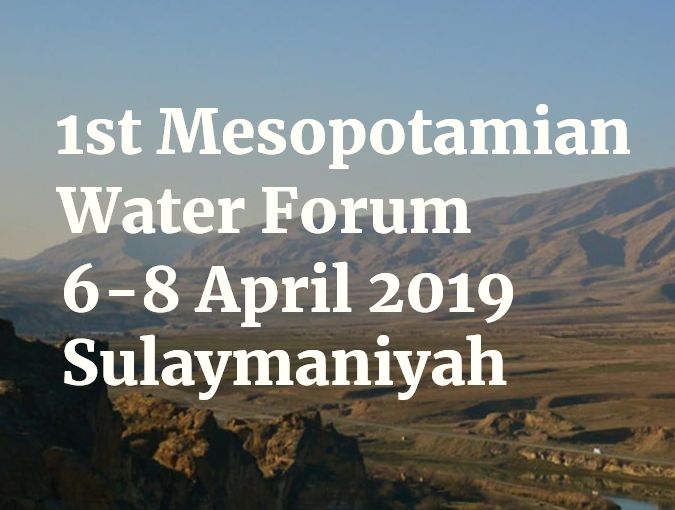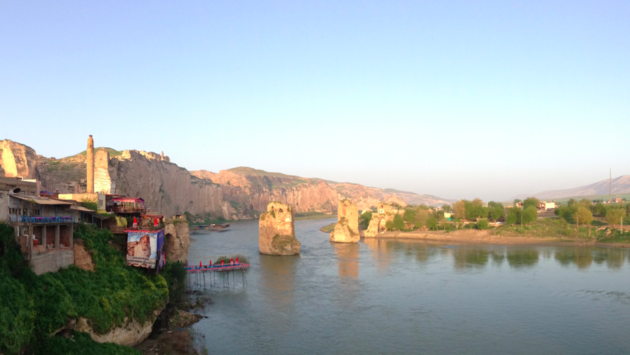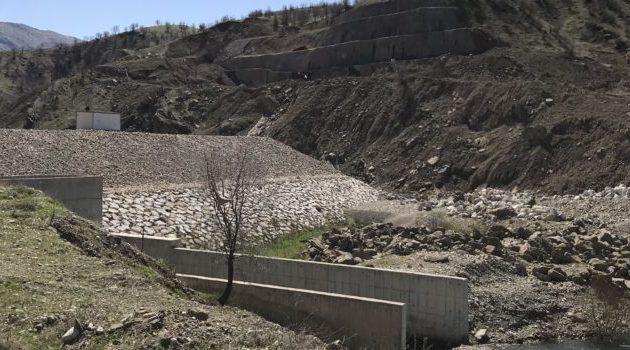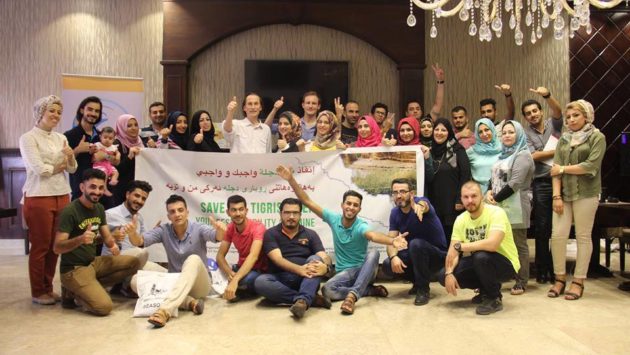Countdown to Mesopotamian Water Forum 2019: Exploring New Basin-Wide Alternatives to Dam Construction in the Tigris-Euphrates Basin
Arabic | عربي
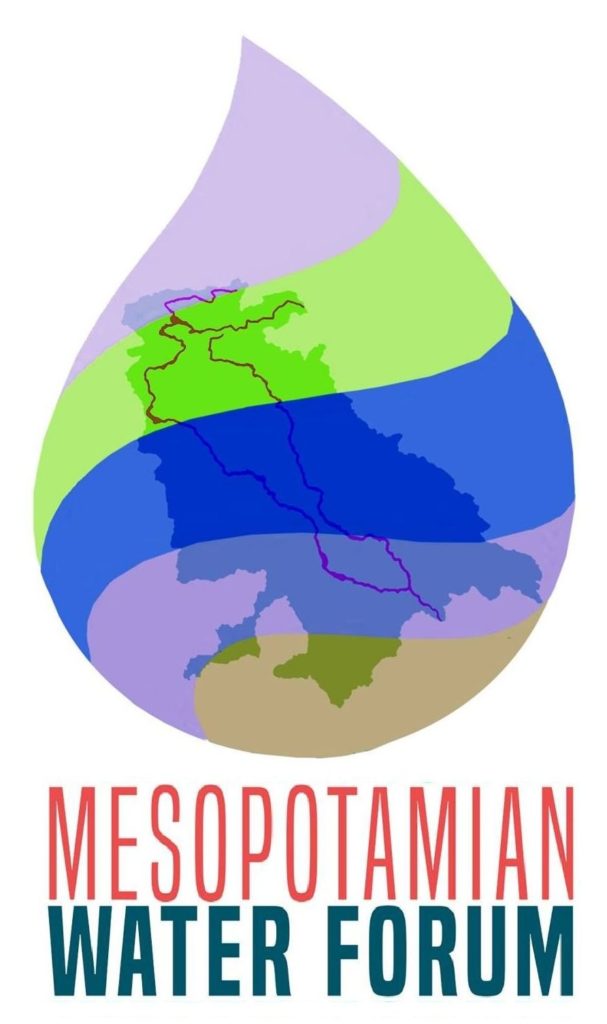
From 6-8 April 2019 the 1st Mesopotamian Water Forum will take place at the University of Sulaimani, Sulaymaniyah, Kurdistan Region of Iraq. A unique space for open and public dialogue about the status and access of bodies of water in the Mesopotamia. This event will be an important opportunity to promote a society-wide coalition for transboundary water cooperation that includes all relevant actors from Iraq, Turkey, Syria
Challenge: Dams
– What are the drivers behind “water nationalism”? Where can water rights activists look for new allies in challenging the use of water to exert control over others?
– What are the limitations of the UN Convention on Transboundary Watercourses and other agreements governing shared rivers? Can they be made more effective as tools for challenging hydrohegemony?
– What insights can be drawn from historical and current efforts by riverine communities to evolve basinwide collaborative decision-making processes? Where have succeeded and where have they failed; and why? Are regional water parliaments a way forward?
Policy and Impacts of Dams in the Tigris and Euphrates Basin
A Paper for the Mesopotamian Water Forum by Ercan Ayboga, Mesopotamian Ecology Movement
February 2019
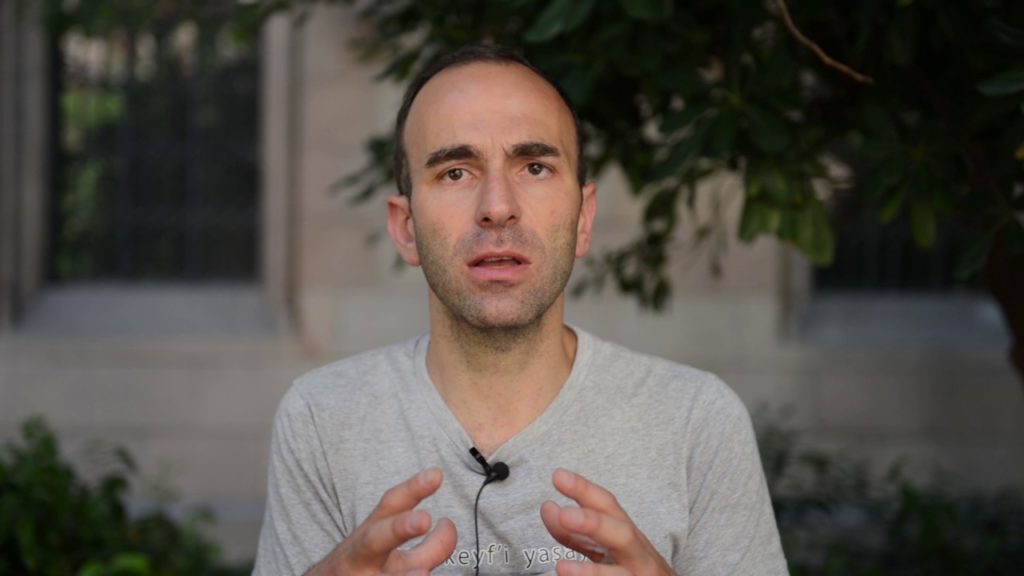
Abstract:
This paper gives a framework for the analysis of the ecological, social and cultural impacts of dams and other water infrastructure and its political implications for the Mesopotamia Region. it discusses alternatives based on acknowledging rights of people living int he whole basin, as well as the impact on wildlife
The intensive construction of dams and other water infrastructures such as irrigation canals in the basin of Euphrates and Tigris rivers – also called Mesopotamia – has profound impacts on the whole river ecology, on the territorial and temporal occurrence of water sources, water quality and thus the access to water for people. These have lacked any consideration of the cultural and natural heritage, relevant international conventions and declarations [like the UN Convention on the Non-Navigational Use of International Watercourses from 1997, the United Nations Declaration on the Rights of Indigenous People (UNDRIP) and United Nations Convention to Combat Desertification (UNCCD)] and principles of democratic decision making process. Apart from the national governments, big companies and big landowners nobody benefits from this policy which is an expression of the “capitalist modernity” linking subsistent producing peasants to the markets and remote populations to a central administration and thus develop the “nation-state. Dams and its reservoirs allow control over big water resources with which state bureaucracies are able to dictate flows and water availability in downstream regions and states and make water part of a wider geopolitics. Nation states have used large water infrastructures as weapon and a tool for achieving political hegemony. It intensifies the existing conflicts seriously.
What could be a tool for socially and ecologically sound water politics, is a Euphrates-Tigris basinwide collaborative coordination which includes independent civil society organizations, local communities, municipalities, researchers and regional administrations. We object to the way the four states in Mesopotamia have negotiated the Euphrates and Tigris rivers and their tributaries: Imposition by upstream states without civil society participation and no mutual agreement between all four states. Local campaigns against destructive dams have contributed in the past 20 years to a growing consciousness among people in Mesopotamia. Save the Tigris Campaign expresses the need for basin wide coordination.
Such basinwide coordination could challenge all efforts and politics to abuse water and develop a new kind of hydrohegemony. People and civil organizations with different political, ethnic and religious backgrounds can negotiate with political authorities in order to find a consensus which takes into account the water rights of all people. Throughout the history the Euphrates and Tigris have connected people from areas far away to each other, but the modern nation-states have caused interruption. A genuine basin-wide civil society movement could even challenge the UN Convention on the Non-Navigational Use of International Watercourses which has not brought the result as expected when approved by the UN and ratified by many states.
Current plans of the four states in Mesopotamia to develop the water resources of the region would lead to further destruction of the rivers and thus drought and increased political conflict. We do not need more dams and more irrigation projects. Strategic goals should be the recovering of the river ecosystem and the return to less water intensive crops in agriculture, as well as the removal of some dams. Hydroelectricity production should be limited to a low level. Water solutions should be developed mainly at local and especially sub-basin level, taking into consideration the needs of the people and ecosystem downstream. This has to be discussed at the basin-wide level.
We invite you to the Mesopotamian Water Forum to come and explore the development of a basin-wide new paradigm in the Mesopotamian region that provides alternatives to dam construction. To attend, please register here. For more information please visit the webpage.


